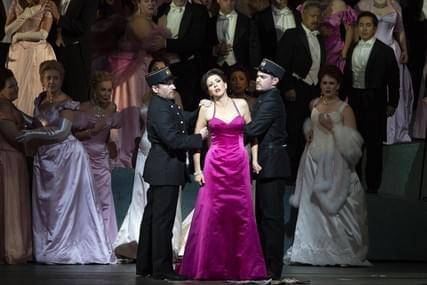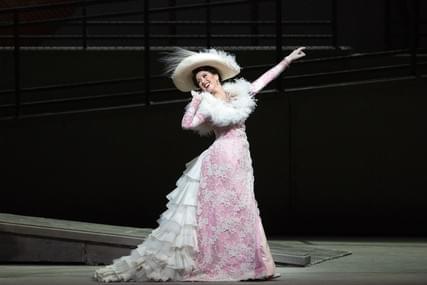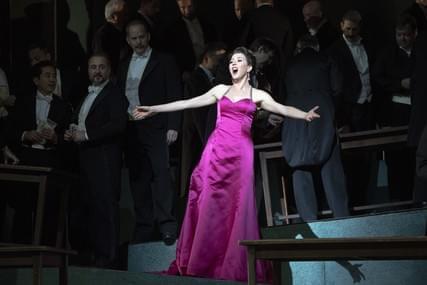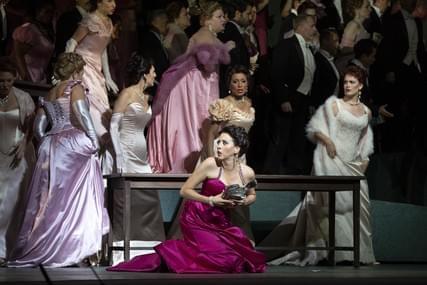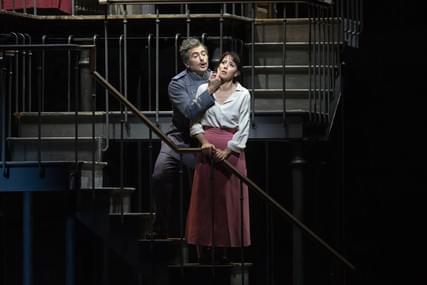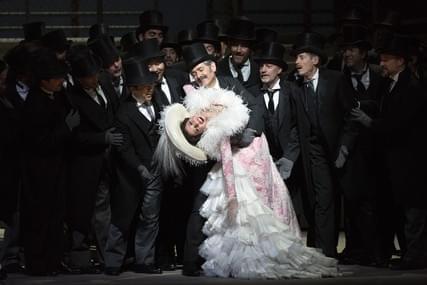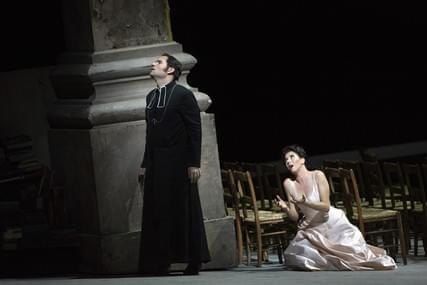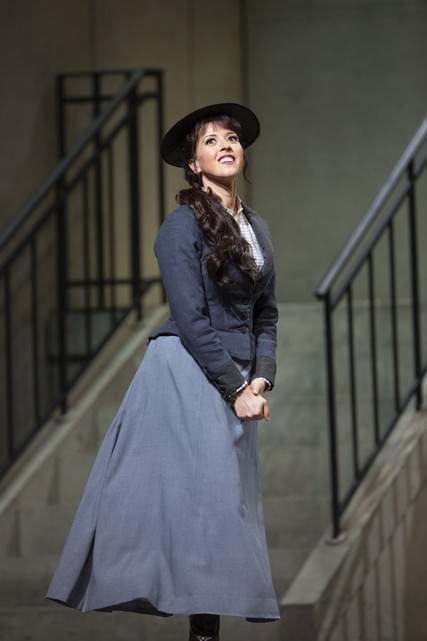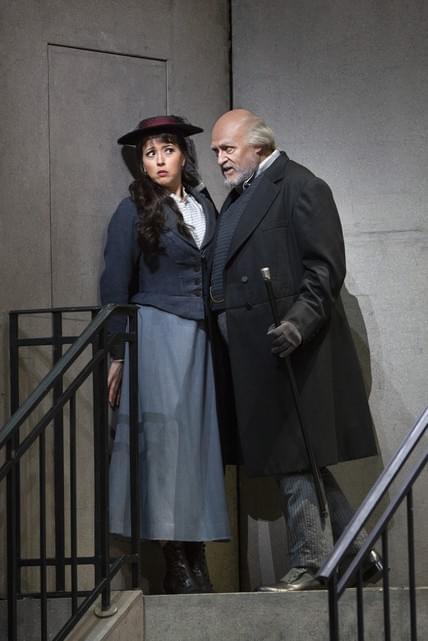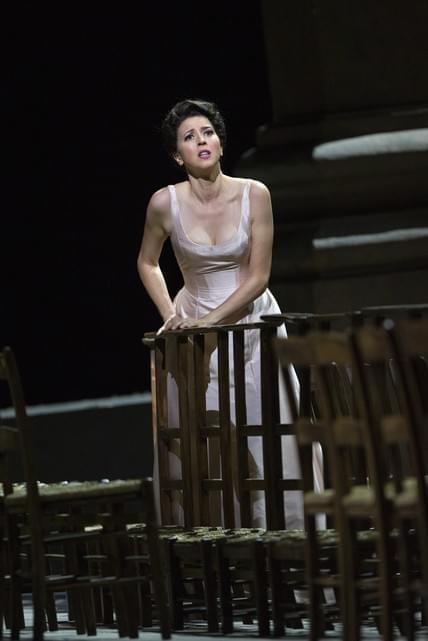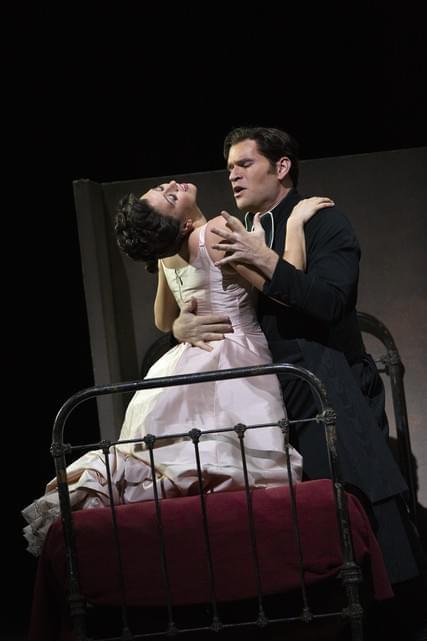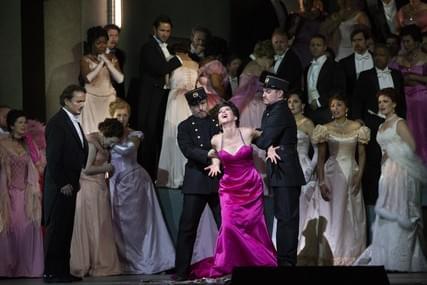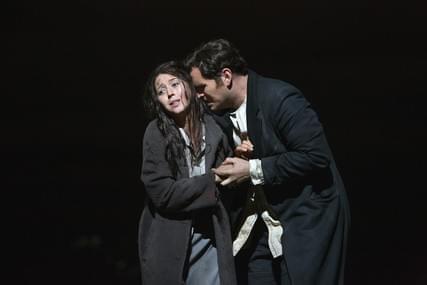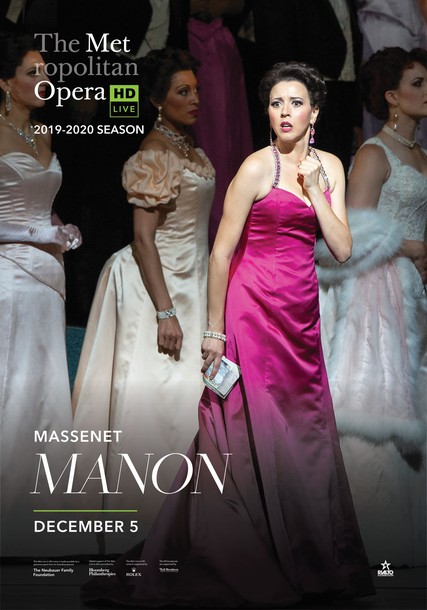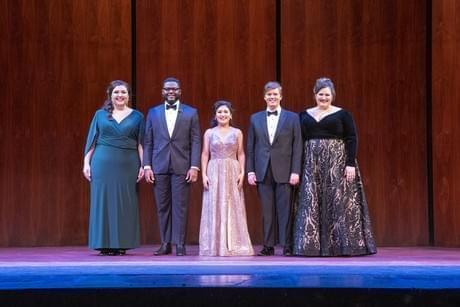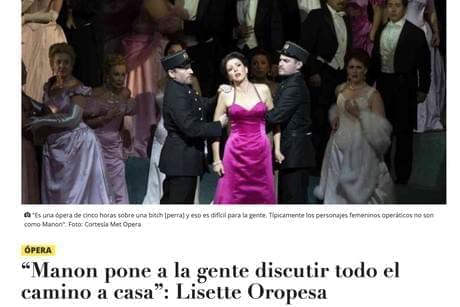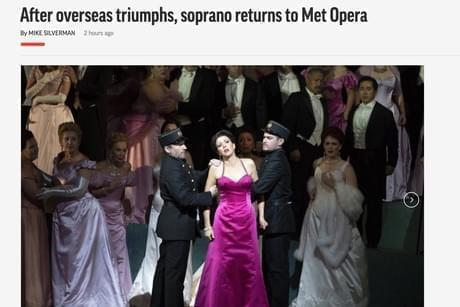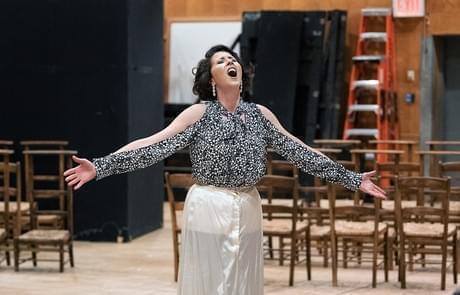Cast
| Manon | Lisette Oropesa | |
| Le Chevalier des Grieux | Michael Fabiano | |
| Lescaut | Artur Rucinski | |
| Le Comte des Grieux | Kwangchul Youn | |
| Guillot de Morfontaine | Carlo Bosi | |
| Monsieur de Brétigny | Brett Polegato |
Maurizio Benini
DirectorLaurent Pelly
Set DesignerChantal Thomas
LightingJoël Adam
DirectorChristian Räth
About
 The October 26th performance will be broadcast LIVE IN HD in cinemas worldwide.
The October 26th performance will be broadcast LIVE IN HD in cinemas worldwide.
MANON will also bebroadcast on Great Performancesat the MET on PBS, January 5th, 2020
Exhilarating soprano Lisette Oropesa stars as the irresistible title character, the tragic beauty who yearns for the finer things in life, in Laurent Pelly's revealing production.Tenor Michael Fabiano is the besotted Chevalier des Grieux, whose desperate love for Manon proves their undoing.Maurizio Benini conducts Massenet's sensual score.
A co-production of the Metropolitan Opera;Royal Opera House, Covent Garden, London;Teatro alla Scala, Milan;and Théâtre du Capitole de Toulouse
Production a gift of The Sybil B. Harrington Endowment Fund





